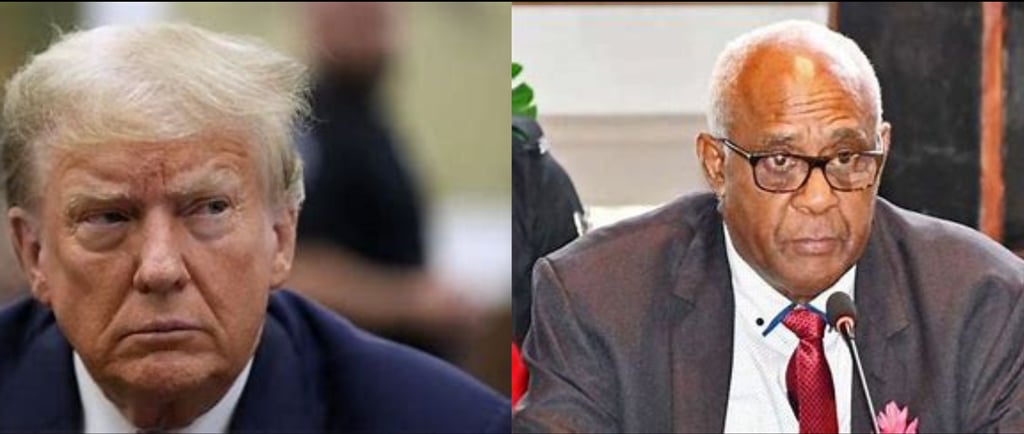Could Fiji Face Sanctions from Trump After South Africa?
FIJI NEWS


The recent suspension of U.S. aid to South Africa by former President Donald Trump has sent ripples across the international community. Could Fiji be next?
Trump’s rationale for cutting aid to South Africa centered on what he perceived as discriminatory practices against white landowners under the country’s land reform policies.
While the context in Fiji differs, the underlying issue—state-endorsed policies that could marginalize minority groups—echoes a familiar pattern.
Fiji’s Great Council of Chiefs (GCC), a traditional institution representing the interests of the Indigenous iTaukei population, has recently proposed constitutional changes that raise concerns about racial discrimination.
Specifically, the GCC has suggested that the term "Fijian" should be reserved exclusively for the Indigenous iTaukei, despite the fact that Fiji’s 2013 Constitution recognizes all citizens as Fijians, fostering a sense of national unity.
This proposal is discriminatory because it seeks to create legal and social distinctions based on ethnicity, effectively excluding Indo-Fijians and other minority communities from a national identity that should belong to all citizens.
In a country where the Indigenous iTaukei are the majority, such moves can further entrench systemic inequalities and marginalize minority groups.
The potential risk for Fiji lies not just in the possibility of sanctions or aid suspensions but in the broader impact on its international reputation.
Fiji has long been celebrated as a multicultural society, with a history of overcoming ethnic tensions to build a more inclusive national identity.
The GCC's proposals threaten to unravel that progress, inviting scrutiny from global powers that champion human rights and equality.